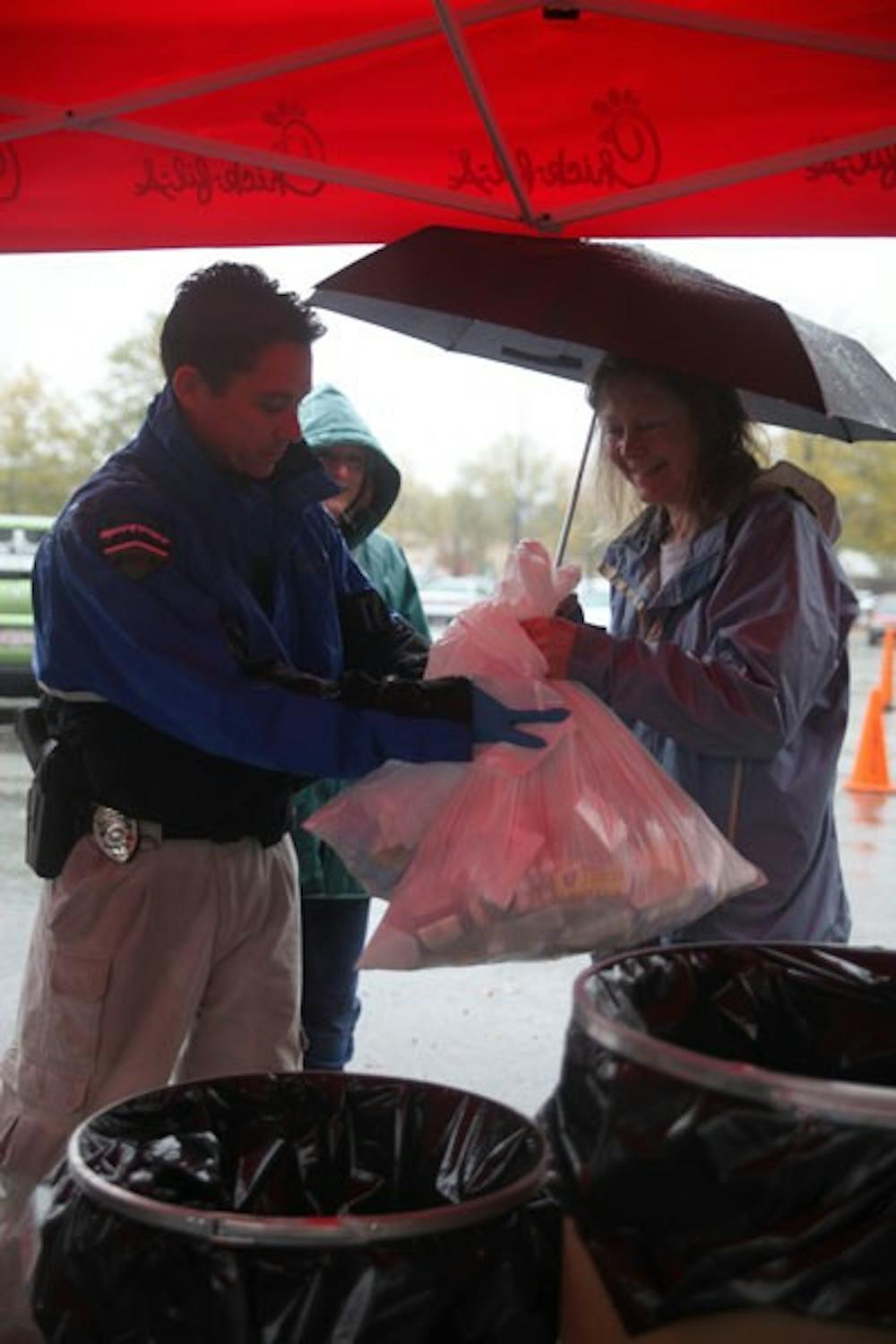Town police and local business and organizations teamed up Wednesday to keep prescription drugs and alcohol locked up and out of the hands of children.
To promote their new “Talk it Up, Lock it Up” campaign, the Coalition for Alcohol and Drug Free Teenagers of Chapel Hill and Carrboro worked with several local groups to organize Operation Medicine Cabinet.
The event aimed to raise awareness about the dangers of substance abuse and educate the public on the proper disposal of prescription drugs.
“‘Talk it Up, Lock it Up’ encourages adults to secure their alcohol,” said Dale Pratt-Wilson, director of the coalition. “Drugs should also be secure.”
The groups set up a place in the University Mall parking lot for residents to drop off their unwanted medicines.
Dropped-off drugs will be collected and sent to an incinerator.
“People can use this to get rid of the drugs people have laying around,” said Robin Clark, community services officer for the police department. “Any time children can get their hands on prescription medicine, it can be a problem.”
Pratt-Wilson said studies showed 30 percent of Chapel Hill and Carrboro teens have taken alcohol from parents without their knowledge. Sixty percent get drugs at parties with their friends.
“It flies under the radar sometimes,” Clark said.
Stephen Lair, franchise owner of Home Instead Senior Care, said drugs left in the house can become toxic and get into the hands of children.
Improper disposal can also hurt the environment, he said.
Sherry Yang, a fourth-year pharmacy student attending the event, said placing medicines in sealed containers before putting them in the trash is better than pouring them in the toilet, which would release them into the water stream.
“Flushing them is not recommended,” she said.
Katie Conger, the office manager of Home Instead Senior Care, which works with senior citizens, said the event was important for their customers.
She said because seniors often have many prescriptions, they may not notice when the medicines expire or be aware of proper disposal methods.
Conger said locking away drugs from children and taking all of the prescribed medicine are important steps in preventing misuse.
Clark said the potential for drug and alcohol overdoses is high when substances aren’t kept out of the reach of children and teens.
“It’s something we always see,” said Charlie Pardo, Chapel Hill police officer.
Clark said police receive calls from schools and concerned parents who are aware a problem exists but don’t think their children are part of it.
She said the peer pressure that often contributes to youth substance abuse could be combated by increased education.
“It’s our job to educate our kids,” said Anne Shelton, a member of the coalition. “It is impossible to protect children from everything.”
Contact the City Editor at citydesk@unc.edu.
Campaign aims to prevent drug abuse

Chapel Hill Police Officer Charlie Pardo handles medications at the “Talk it Up, Lock It Up” program. DTH/Phong Dinh

